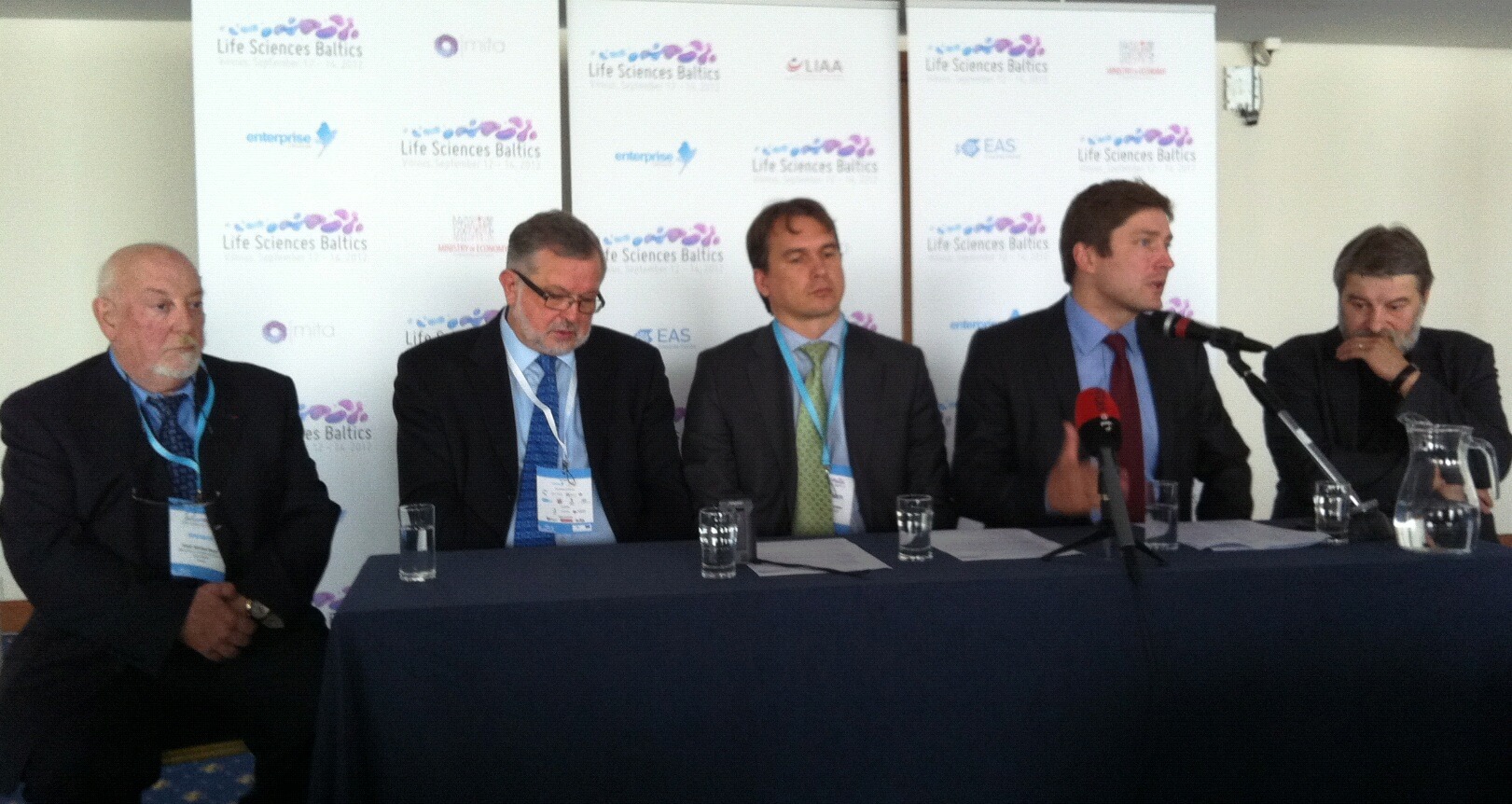This is what Prof. Vladas Bomlis, one of the founders of Sikor Biotech, which today is part of the Teva Group, said as part of the first major life sciences conference in the Baltic countries that took place last week in Lithuania

Life Sciences Baltics Conference 2012 The international life sciences conference was held last week in Vilnius, the capital of Lithuania. This is the largest conference of its kind held in the Baltic countries. It was attended by 700 experts from the field, half of them from abroad, including 120 from Israel.
"Production of Lithuanian medicines to be marketed in America - 15 or 20 years ago this was impossible, says Prof. Vladas Bomlis, who in the Soviet period was the director of the Institute of Enzymes, and later founded the company Sikor Biotechnology, which was later acquired by Teva. Prof. Bomlis also serves as the Honorary Consul of Lithuania in Israel.
Last week, the FDA approved the drug filgrastim intended for the treatment of cancer by Sycor-Teva for marketing in the USA. Prof. Bomlis suggested using the term bioeconomy. The biotechnology industry currently provides about 2020 percent of Lithuania's GDP, but the forecast is that in 2 it will provide XNUMX percent and more.
"We don't have to produce the drugs here with an investment of millions of euros. But we need to use our knowledge in biotechnology and then export it. I am convinced that the 21st century is the century of biotechnology, and I am sure that this will be the medicine not only for proteins but also for stem cells."
Lithuania's Minister of Economy Rymantas Jilios said that the life sciences sector that is currently building Lithuania is a legacy of the 18th century with the establishment of the Faculty of Chemistry and Biology at the University of Vilnius. -35 medals in international competitions.
"During the Soviets, they established the Institute of Enzymes, so biotechnology is one of the fields where accumulated experience is put to good use. Sykur-Biotech is a good example. They sell their products all over the world and do not limit themselves only to the Lithuanian market. The crisis we had showed us that we need to rely on exports."
"Today's important cultural and scientific event is unprecedented. We haven't had anything similar so far, the Ministry of Economy and the Ministry of Education are trying to find the connection between education and science and what needs to be done in order for us to have the desired results. We invest a lot in the infrastructure and I think the event shows these results. The results when businessmen and scientists from all over the world who share a common interest can achieve.
Lokoreks, director of Interface Lithuania, the government company that organized the conference, said: "The field of biotechnology is the field that needs to be talked about and today is the day when it is possible to show what Lithuania is doing and can do. We have a lot of modern equipment, a lot of practical examples and we want to attract more universities and businessmen to increase exports."
"In 2010 we visited the Biomed exhibition in Israel and it had a great impact on us. We take Israel as an example and that's why we decided to cooperate together with Israel to organize the event. Without the help from Israel, the conference would not have been successful. They helped us with lecturers. This is an example of how government, science, private institutions and business people can work together. The ambassadors in the world helped us with this and by working together we can do more. As the minister said, the event held alongside the Vilnius University exhibition attracted many students. We also have a conference that attracted Lithuanians who work abroad and this is an excellent opportunity to bring them home."
Amir Malka, CEO of Bioforum, the Israeli company that organized the conference in collaboration with another Israeli company - Kaleidoscope, says in this press release to the science website: On our first visit to Lithuania, we met an energetic, patriotic and motivated team that reminded us of Israeli vigor. On this basis, an immediate connection of mobilization and action was formed between us. The vision, the good will and the internal communication we received contributed a lot to the process, during which we enjoyed working together with a quality team guided by the vision of a great statesman.
I want to thank them for the opportunity to work closely with you during a long period during which we learned to appreciate and respect, to know and cherish their country, their culture, the science that is a significant milestone in your life and your ambition to continue to develop in the biomedical field and other fields, and to build a solid economic base for the welfare of their people.
I said to them, "Thank you for the trust you have shown in the Israeli biotechnological industry and for allowing us to invite its best people to sit here together with us, to create a dialogue, which we hope will develop in the right directions and advance the biomedical industries in the Baltic countries and at the same time contribute to the work in this field in our country as well.

3 תגובות
What exactly do you want him to update?
My father please why don't you update